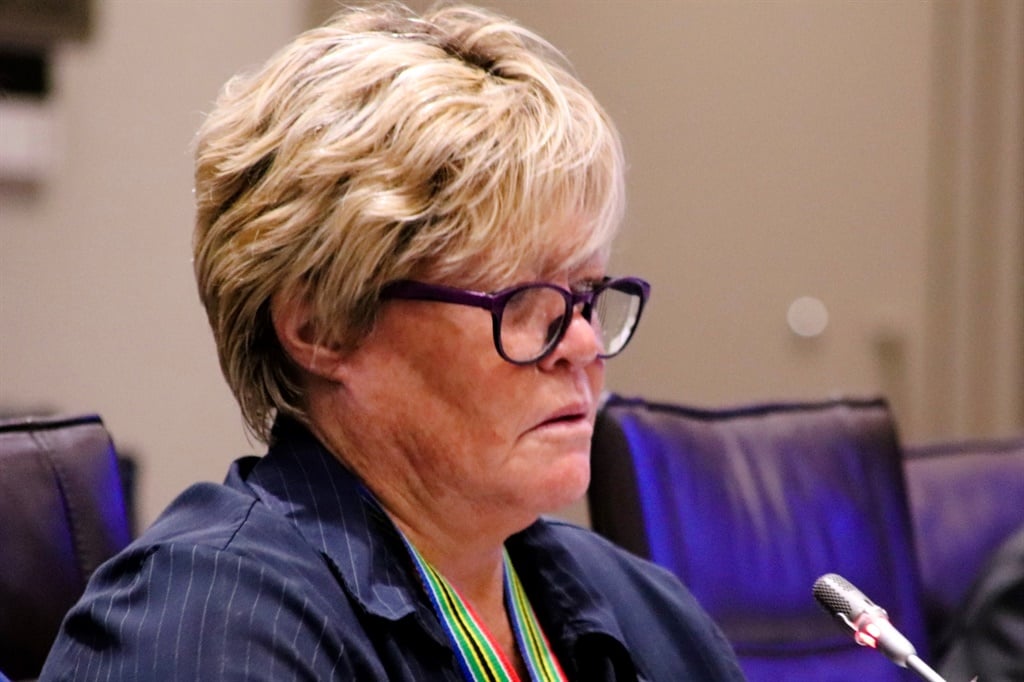
- Parliament's Portfolio Committee on Justice and Correctional Services will get an outside legal opinion on the constitutionality of the controversial Traditional Courts Bill.
- DA MP Glynnis Breytenbach said the bill was unconstitutional and saw nothing but "unfairness and trouble" if passed in its current form.
- Deputy Justice Minister John Jeffery said it was up to the Constitutional Court to determine whether the bill was constitutional or not.
Parliament's Portfolio Committee on Justice and Correctional Services will approach an independent senior counsel for a legal opinion on the constitutionality of the controversial Traditional Courts Amendment Bill.
The committee discussed the bill on Friday.
ANC MP Xola Nqola said the concept of traditional leadership was "too complex" as it differed from one tribe to the other.
"I want us, chair, to be meticulous when we deal with this particular bill."
He proposed that the committee solicit a legal opinion from senior counsel in Parliament's legal unit.
DA MP Glynnis Breytenbach had strong concerns about the bill, particularly the absence of an opt-out clause, saying she did not disrespect customary law.
"This bill, with the stroke of a pen, is going subject millions of people, but more particularly women, to a system that they do not want to be part of necessarily, that they do not necessarily know as fair, to a system, again with the greatest of respect, deeply patriarchal," she said.
"And I cannot reconcile myself to a bill that with the stroke of a pen subjects those members of the population to a system they do not want to be part of, and they have no choice.
Breytenbach added she believed the bill was unconstitutional without an explicit opt-out clause.
ALSO READ | Police officer impregnated prisoner, Parliament hears
"I believe it entrenches inequality, and I cannot support it."
She suggested an outside senior counsel, who was not invested in the process, should be used.
Deputy Minister of Justice John Jeffery said the bill was not creating traditional courts, adding they already existed.
"This bill is regulating these courts and bringing them in line with the Constitution.
"The aim is a bill that people could live with, not one that everybody supported. We got that – a bill that people could live with - but probably nobody was particularly keen on it.
"The problem largely is we have a dual system in our country.
"Some people see it as devastating that we have a bill on traditional courts. But our options are either to change the Constitution, abolish traditional leadership, outlaw traditional courts, or we [have] got to regulate them. And I think they do provide mechanisms for people to get disputes resolved."
Jeffery said it was up to the Constitutional Court to decide whether the bill was constitutional or not.
"We hope it is constitutional, but ultimately the Constitutional Court will decide.
He added:
Committee chairperson Bulelani Magwanishe said it was important that the National Assembly was convinced the bill was constitutional by the time it was passed.
"And we should take every step to ensure that we are convinced, as the relevant House, that the bill that we pass is constitutional," he added.
The committee agreed to send the bill to an outside senior counsel for an opinion on its constitutionality.
ALSO READ | Facebook is coming to Parliament, DA says
The opt-out clause refers to a clause that would allow people to decide whether they want to be heard in a traditional or a magistrate's court.
After it was first introduced to Parliament in 2008, the bill has had a long, fraught history, drawing criticism from human rights organisations.
The 2008 version of the bill made opting out of traditional law a criminal offence; the current version does not. It also did not allow women to represent themselves. This version lapsed and was reintroduced in 2012. After a slow passage through Parliament, it was rejected by a majority of provinces and not passed.
The latest version was introduced in 2017.
It was passed by the National Council of Provinces in December last year and now is back before the National Assembly.
Do you want to know more about this topic? Sign up for one of News24's 33 newsletters to receive the information you want in your inbox. Special newsletters are available to subscribers.
